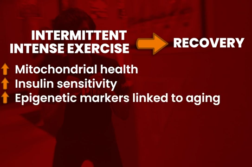TAMPA, Fla. (Ivanhoe Newswire) — It’s a devastating diagnosis that changes a child’s life — and their family’s — forever. Duchenne Muscular Dystrophy, or DMD, is a rare and fatal genetic disease that primarily affects boys, slowly robbing them of their ability to walk, breathe, and live independently. Until now, there have been no treatments targeting the root cause — only ways to manage the symptoms. But now, a breakthrough could change their lives forever. Gene Therapy
Logan Farley has faced a lot of challenges at and beyond his favorite fishing spot. Stephanie and Patrick Farley saw a video of a little boy in China, and despite signs of a muscular disorder, they adopted him and never looked back.
“We’re not going to live the rest of our life in fear of what could happen,” Stephanie told Ivanhoe.
Genetic testing could not confirm Duchenne Muscular Dystrophy (DMD), but a muscle biopsy at UCLA did.
“He could see that he was declining and that it was getting worse and worse,” recalled Stephanie.
Pediatric neurologist Omer Abdul Hamid, MD at Nemours Children’s Hospital found a way to give Logan more time to be a kid.
“Now we have new options that actually address the underlying cause of the disease, the missing protein. We can give a gene therapy or what we call gene transfer therapy, where we actually transplant the missing gene into the body,” explained Dr. Hamid.
It isn’t a cure, but it may slow the damage.
“It should slow the progression and hopefully actually help these boys regenerate some muscle,” said Dr. Hamid.
Logan got the one-time infusion called Elevidys last December — and today?
“We actually have hope that, wow, maybe he will keep walking for the rest of his life. Maybe he will go to college, maybe he will get married,” said Stephanie.
And for now, Logan and his family are reeling in the moments — one fish at a time.
Gene therapy for DMD offers hope, but it comes with the need for close monitoring — especially in the first three months. Patients may require frequent lab work, hospital visits, and steroid adjustments. Though some have experienced serious side effects affecting the liver, heart, or muscles, those cases have been successfully managed, with patients making full recoveries.
Contributors to this news report include: Marsha Lewis, Producer; Matt Goldschmidt, Videographer; Roque Correa, Editor.
* For More Information,
Go To https://www.nemours.org/services/neuromuscular-program.html, And to Schedule an Appointment Call (407) 650-7715
Free weekly e-mail on Prescription: Health from Ivanhoe. To sign up: http://www.ivanhoe.com/ftk



